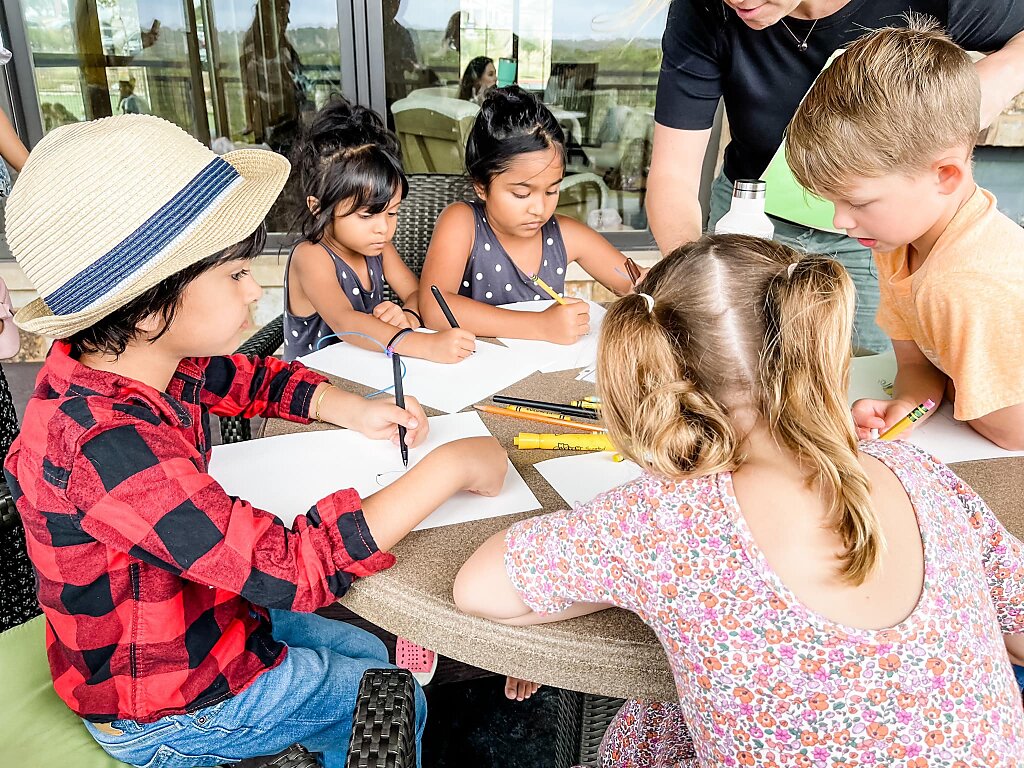Like many creative educational options, Sweetwater Scholé is evidence that necessity is the mother of invention. Despite a career working to advance educational freedom and school choice, Randan Steinhauser’s original education plan for her children was pretty typical. “When it came time for my husband and I to buy a house, the first thing we looked at was the local school district,” she recalls. “I grew up in public school. My husband did, too. So, I’m fighting for school choice for other families. But I never thought of it for myself.”
When her oldest daughter was one, Randan had twins. She sent her daughter to a part‐time preschool to give herself a bit of a break. She was shocked when the teacher said her daughter was doing well but should be attending five days a week—as a two-year-old—to get kindergarten ready. Randan says that was a moment of clarity. She pulled her from the preschool, which for them was meant to be a fun outlet and a break for Mom. “That really led me on a journey to start to educate myself on what my choices were,” she says. “It was like a light bulb went off. No one knows my child better than I do, and I want to be a part of that educational journey for them. I started researching home education and fell in love with everything I was reading. I fell in love with the wild and free unschooling, all of this education by choice, not by coercion and child‐led learning. And that led us to where we are now.”
Fast forward a few years. Randan now has four children and decided to take a year off work when her youngest was born. That gave her more free time, so she decided to start a homeschool co‐op that she calls Sweetwater Scholé. Inspired by Charlotte Mason, the co‐op is designed around hands‐on and creative learning. Children are introduced to an idea or concept and then use nature‐based play, books, art, poetry, music, and conversation to explore it.
Sweetwater Scholé just wrapped up its first year in operation. There were more than 50 families involved, with around half of those attending on a weekly basis. “My goal was to have maybe a dozen kids. I thought it would be super quaint and intimate,” says Randan. “When we finished our school year—we did 10 weeks in the fall and 10 weeks in the spring—we ended up with 49 kids who consistently came, representing over 20 families.”
Randan notes the co‐op has a wide range of diversity including various religions, ethnicities, homeschooling styles, and ages. But they’re united around a desire to see their children thrive in a learning environment that puts them at the center. Many families joined who had pulled their kids from public school for a variety of reasons, including to have more time together, foster a love of learning, escape bullying, avoid wasted time, and allow their children to learn at their own pace.
As Randan has gone back to work, other moms have pitched in. This spring, a different mom took the lead each week—one focused on space, one did oceans, one did weather, and so on. The group will continue to meet for free play over the summer with no lessons planned. “For the fall, I have some moms who want to continue to step up and lead,” Randan says. “The other cool thing about this is that as our group got so big—there were families driving to our co‐op from 30–40 minutes away—I really started to cultivate those moms. I said ‘Hey, just take the leap. Put something out on your neighborhood page. Put something out in your local community.’ So from our co‐op, we now have two new co‐ops. Our little babies.”
Randan is very reflective about her experiences. For years, she worked to advance education freedom for children with special needs and lower income families, but she hadn’t thought of it in terms of her own family. “It really weighs on me that I was oftentimes talking about how other families should have choice or other families should have freedom. And it was only when I started to evaluate our own children’s education that I realized we, too, should be able to have that freedom. And that is really what has led me personally into being an advocate for universal education freedom.”

